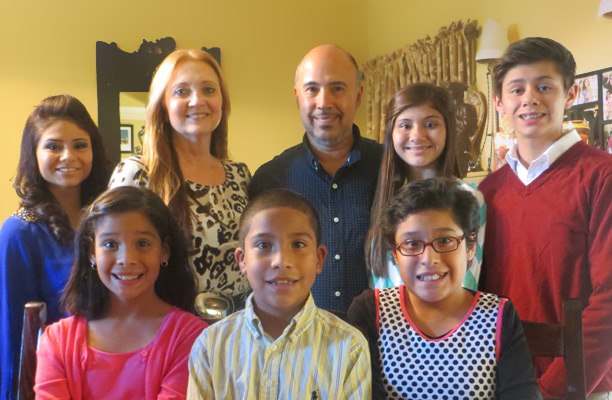
At a time when they could have been looking ahead to retirement, Lynne and Santiago Class decided to hit the reset button on their lives and start a second family.
When they married in 2005, Lynne and Santiago each had teenagers from previous marriages. After the children grew up and left home, the couple began to consider adoption.
“Our friends thought we were crazy!” Lynne said. “People kept asking, ‘Why would you want to do that?’ ”
To these friends and others, Lynne often responded that adoption was something they “felt led to do.” It was not only a means to help children, it was a way for Lynne and Santiago to have a family together.
“Because ours was a second marriage later in life, we had not had children as a couple. We felt we could do this through adoption,” Lynne said.
In thinking about the children they would adopt, Lynne and Santiago felt open to any race or ethnicity. But they hoped to find Hispanic children with whom Santiago, who is from Puerto Rico, could share his native language and traditions.
Their adoption counselor had warned them that it was uncommon for Hispanic children to come into care in their area. But to everyone’s surprise, shortly after Lynne and Santiago were approved to adopt, a group of three siblings—Blanca, Mari, and Simon—became available. Lynne and Santiago eagerly welcomed them into the family. Their adoption was finalized four months later.
“The children had lived in seven different foster homes in the last four years. They were so bonded to one another that we called them the Siamese triplets,” Lynne said. “We could not get them apart!”
Lynne and Santiago decided that adopting another child, perhaps a teenage girl, could be a way to diversify the children’s attention. But when Lynne contacted their caseworker, she learned that the uncommon had happened again: a group of three Mexican/American siblings had recently become available for adoption—two girls and a boy.
“We were really just looking for one child. But the minute we saw their picture we knew they were supposed to be our children,” Lynne said.
It has been nearly four years since Lynne and Santiago first became adoptive parents. The experience has been such a positive one that Lynne is now a co-leader of adoption preparedness classes for the agency she and Santiago worked through.
“I tell people that adoption is the most difficult thing—and the most rewarding thing—that you will ever do. Seeing the kids excel, and knowing that you are giving them the opportunity to reach their full potential…I cannot think of a greater reward than that.”